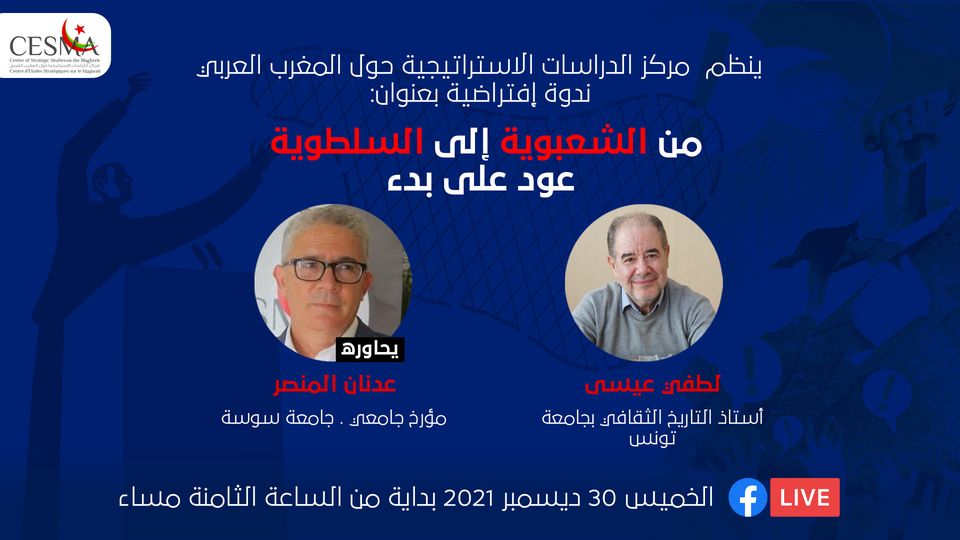Virtual Seminar, December 30, 2021
“The sovereign cannot be subject to the law, he is the law.” These words are echoed in the political discourse of a number of key players on the Tunisian scene, but with different formulations compared to those formulated by “Carl Schmitt”, author of “Political Theology”, who launched the concept of “sovereignty” and defended the line of absolute authoritarianism.
In the case of Tunisian political actors, among the leaders of the populist movement and its symbols in the country, we find a discourse based on the duality of good and evil, ally and enemy, as well as a reiteration of Schmitt’s approaches laying the foundations of authoritarian discourse, which in turn represents a major pillar in the populist discourse of the victorious “sovereign”, made of inescapable dualities.
The populist rhetoric has found some resonance among Tunisians who have identified in it a response to the state of desperation and anger against the political class in business over the past decade. This class failed to achieve the goals of the revolution, which raised the level of pessimism and anxiety about the future.
Populist currents promise the return of “sovereignty to the sovereign”, that is to say to the people who have gone from delegating their sovereignty to exercising it alongside the “leader” whose features are emerging in the authoritarian regime where the individual represents the will of the people and their leader in their war against the “enemy” and in the search for salvation.
In populist discourse “the people” are free from error, and so it is in authoritarian discourse. This is a point of similarity on which Lotfi Issa, professor of cultural history at the University of Tunis, agrégé and holder of a doctorate in history, highlights in this seminar. Adnen Mansar interviews Lotfi Issa with the aim of analyzing and understanding the points of intersection between authoritarianism and populism, and their manifestations in the speech of politicians whose speech has fueled anger over the achievements of the past decade. Are we facing populism or authoritarianism? Professor Issa informs us that the two concepts cannot be separated.
Populism is articulated around two issues, the first is “the sanctification of the people” as a bloc that cannot be confused, according to Lotfi Issa, and the second is political construction after representative democracy, and like authoritarianism, it is based on a sharp criticism of liberal political thought and its limits and its attack on “sovereignty”. In Tunisian contexts as in others, populist and authoritarian currents propose post-democratic approaches based on the end of representation and intermediary bodies. Populist rhetoric touches the emotions of the public, and acts as if it represents their frustration and anger at the “failure of the black decade” and the “corrupt political class”, and it seeks to end it all by a collective action of salvation. However, the experiences of other peoples teach us that between “populism” and “authoritarianism” there is only one step, often crossed in the name of “salvation”.


